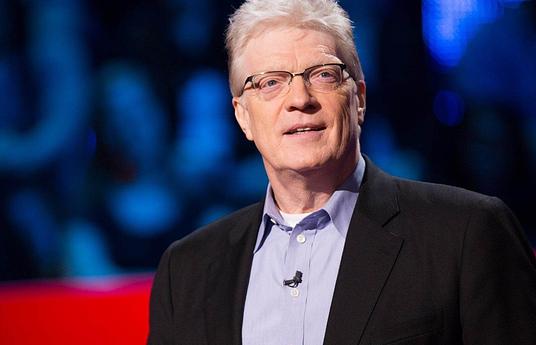Anne-Marie Imafidon
Anne-Marie Imafidon is the CEO and co-founder of Stemettes, an award-winning social enterprise that encourages girls into science, technology, maths and engineering related careers.
Skills
What should children learn in school?
The skills that children really need to be learning now are coding skills and learning skills.
When we talk about going to school, we talk about learning facts or knowledge. I think it’s important that students learn how to learn, because once you have left school you still have a life-long learning agreement with yourself. You’re supposed to learn continuously, we call it ‘professional development’ when we’re older, but some people get left behind because they are not used to learning independently.
It’s about discovery and exploration, which is something else that should really be taught, or at least allowed to flourish, within the school environment.
Do you think that students can and should take control of their own education?
100 percent - I did. You’ve got to because it’s your education and your life.
Students should definitely take control of their own education and feel empowered to do so in the choices that they make in terms of subjects, but also whether they go down academic routes or non-academic routes.
Teachers
What is the role of the teacher?
The role of the teacher is to inspire and educate.
I think it’s quite difficult to do both - there are a lot of people who are inspiring and are also able to be educational, but sadly there are also teachers who feel like their role is just to educate, and who have no ability to make that emotional connection.
Assessment
Do you think standardized testing is an effective way to assess learning?
Standardized testing is an interesting one - I like the question: ‘is it the most effective way?’ It’s different from ‘is it the only way?’ or ‘is it the best way?’
It is the most effective that we have at the moment, but there is definitely room for innovation going forward. The world has changed quite a lot from when the education systems we currently have were set up. What they were preparing students for then was an environment that didn’t have the internet and wasn’t as free-flowing as it is now.
For me standardized testing is kind of reminiscent of that system. I think we are on the cusp of entering a new era in which standardized testing isn’t the way that we measure how much someone has learnt.
Environments
What would be the most exciting learning environment?
The most effective learning environment depends on the person - there isn’t anything that works for everyone.
I know that an informal learning environment is what has always worked for me. Even with the Stemettes - when I’m teaching the girls to code and to build things that relate to certain aspects of STEM, informality is where they learn the best because they are quite relaxed. There are no inhibitions or overhanging burdens that they carry with them into that environment. They are able to be free and ask questions, explore, break things and discover new things without those inhibitions. I think that’s a great learning environment.
Leadership
Whose responsibility do you think education is?
I think the responsibility is one that is shared. It’s shared between the parents, the child and the government / education system that is closest to them.
There is something really important about allowing the child to feel responsible for things which, in a lot of cases, they don’t. They feel like it’s inflicted on them by the government or parents, or both, and they don’t feel empowered, they don’t feel like the third voice in that space.
It is important that governments do take education seriously and I think it’s something that most of them do - it’s the future, it’s how you self-sustain. It’s kind of like self-preservation to make sure you educate your people.
I think it is quite easy for a government to have an education system, to set it up and let it run. But as a parent you have to learn very quickly to take responsibility and make decisions with and on behalf of your child - we often do forget the role of the parent, because it is so difficult to manage, look after and influence.
Personal memory
What was your favourite moment in your own education?
My year three teacher was Mr. Davis, who I actually haven’t seen since then. He was the head of maths for our primary school but also my primary school teacher. He would allow us to come into school early and do maths competitions against each other rather than freeze outside in the playground playing football. I was in my element, and I look back on those as fond memories - scoring well and doing something that I really enjoyed.
The next 100 years
The next 100 years of Finnish education should… look nothing like the last 100 years. Even over the last twenty five years with the web appearing, the advancements in life means that Finland as a country has changed so much. It would be such a shame for us to get to the end of this next 100 years and for the education system, which should reflect and prepare the next generation for this brand new life, to be reminiscent of the first 100 years.
Life as we know it has completely changed. Even our biology as human beings, the things that should remain constant, have changed. So the next 100 years have to look completely different.



